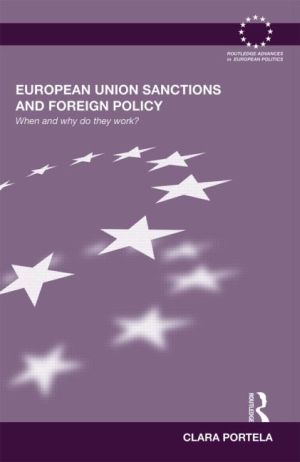
Sanctions are an important tool within the foreign policy of the European Union, which have until now remained obscure to both scholars and the general public. This book examines sanctions as a political tool of influence and evaluates the efficacy of sanctions imposed by the EU against third countries and their ability to bring about the desired outcome.
While the principal sanctions activity of the EU takes place under the Common Foreign and Security Policy, the author also considers the suspension of development aid under the ACP-EU Partnership Agreement, the withdrawal of trade privileges under the Generalized System of Preferences and other sanctions outside these frameworks. Reviewing the sanctions practice of the EU in its virtual entirety, Portela assesses the relevance of classical sanctions theory by testing a series of hypotheses with empirical case-studies attempting to identify the determinants of success of EU sanctions.
Enhancing our understanding of the EU's international role, this book will be of interest to students and scholars of international politics, security studies, EU studies, human rights and democracy, conflict management, IPE and development studies.